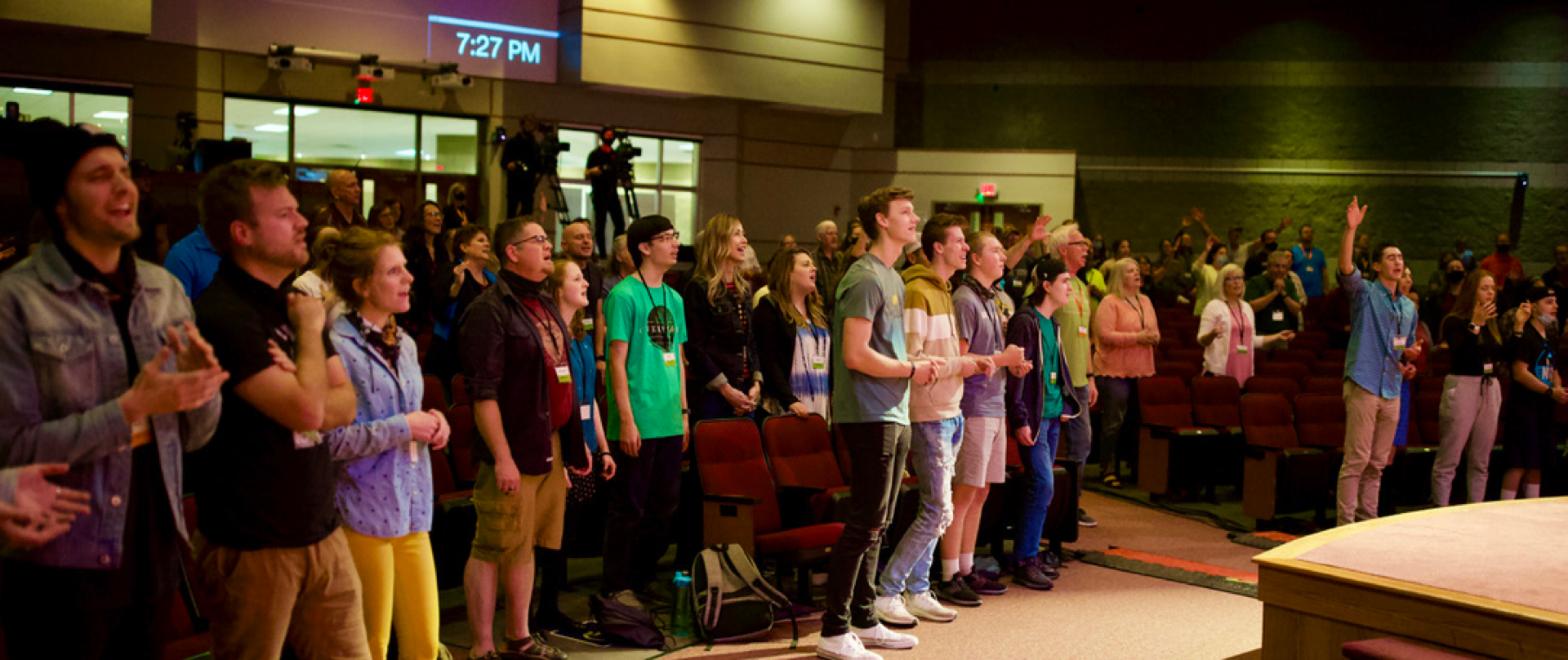
Episode 130: 4 Tips for a Healthy Worship Team Culture
How to Build and Maintain a Healthy Worship Team.
Building and maintaining a healthy worship team is not just about assembling skilled musicians—it’s about cultivating a community that serves with joy, purpose, and unity. In a recent episode of the Overflow Worship Podcast, Andrea Olson hosts Gary Durbin (garydurbin.com), a seasoned worship leader and author, who shares key principles for nurturing a thriving worship team. From attracting the right people to empowering individuals, Durbin offers practical insights that are sure to resonate with worship leaders everywhere.
“You Attract Who You Are”
One of the first takeaways from the conversation is the idea that you attract who you are as a leader. Durbin explains that if you want a committed, joyful, and unified team, you need to embody those qualities yourself. He recalls a valuable quote from worship leader Darlene Zschech: “Whatever you want or whoever you want on your team, you need to be that.” This principle sets the foundation for building a team that reflects the heart and vision of the leader, making it essential for leaders to cultivate the values they wish to see in others.
Durbin emphasizes that this process starts with an audition, which serves as a filter to ensure that the right people are being added to the team. He stresses the importance of having auditions as a way to “say no” to someone early on rather than having to remove them later, avoiding unnecessary tension. This also ensures that people with potential can grow into their roles with proper guidance and training.
Why Training and Defining Roles Are Essential for a Successful Worship Team
Training is a continuous process that plays a crucial role in team development. Durbin points out that “Practice is what we do on our own; rehearsal is what we do when we come together.” By defining and clarifying these terms, leaders can set the right expectations and help their teams understand the importance of personal responsibility. When team members come to rehearsal, they should already be prepared, making the group session a time to refine and polish rather than learn.
Durbin also highlights the value of providing ongoing opportunities for growth, whether through workshops, team parties, or even one-on-one check-ins. His innovative Worship Team Checkups—15-minute individual meetings with team members—offer a chance for personal feedback and open communication. This type of intentional engagement not only encourages growth but also helps team members feel valued and connected.
The Benefits of Team Rotation for Long-Term Success in Worship Leadership
Sustaining a healthy worship team requires more than just good music—it involves avoiding burnout and fostering a culture of shared responsibility. Durbin advocates for implementing a rotation system to avoid overworking team members and to prevent anyone from becoming too territorial about their position. “If you don’t make rotation a goal, the risk you run is burning people out,” he warns.
Though some leaders may fear that rotation will affect the quality of music, Durbin reminds us that the church is not a band—its primary focus is serving and worshipping together. “We are not a band, we are a worship team, and we are ultimately the church,” he says, urging leaders to prioritize team health over perfection in performance.
Practical Ways to Equip and Inspire Your Worship Team for Success
Empowerment is the final key to maintaining a healthy worship team. Durbin explains that empowerment goes beyond delegating tasks—it’s about helping each person on the team own their role and contribute meaningfully to the whole. This includes vocalists, musicians, and tech team members alike. For vocalists, for instance, Durbin emphasizes giving them the freedom to lead worship in their own way, whether that means guiding the congregation in prayer or simply singing.
Empowering the team also involves fostering a culture of creativity. Musicians are encouraged to bring their ideas to rehearsal, knowing that while not every idea will be used, their contributions are valued. This sense of ownership keeps team members engaged, excited, and invested in the ministry.
Durbin sums it up beautifully: “Teach your team members to own the team, not the position.” When team members are empowered in this way, they not only feel more confident but also experience greater joy in serving.
How to Lead from the Overflow in Worship Ministry
Ultimately, the conversation between Andrea Olson and Gary Durbin centers on the idea of leading from a place of overflow rather than overwhelm. By focusing on attracting the right people, providing clear training, maintaining a sustainable rotation, and empowering team members, worship leaders can cultivate a healthy, joyful, and effective team. Durbin’s insights are a timely reminder that the health of a worship team is about more than just musical excellence—it’s about fostering a Christ-centered community that serves with passion and purpose.
For more wisdom and practical tips on leading worship, be sure to check out Gary Durbin’s books, More Than a Worship Leader and More Than a Band, as well as his podcast, More Than a Worship Leader. Find the book "More Than A Worship Leader" at www.garydurbin.com.
For more Overflow Worship resources: www.overflowworship.com
Watch the Podcast at: https://www.youtube.com/watch?v=zDgzVSwFwFc&t=5s
Listen to the Podcast at: https://podcasts.apple.com/us/podcast/overflow-worship-podcast/id1461518398?i=1000670351782










